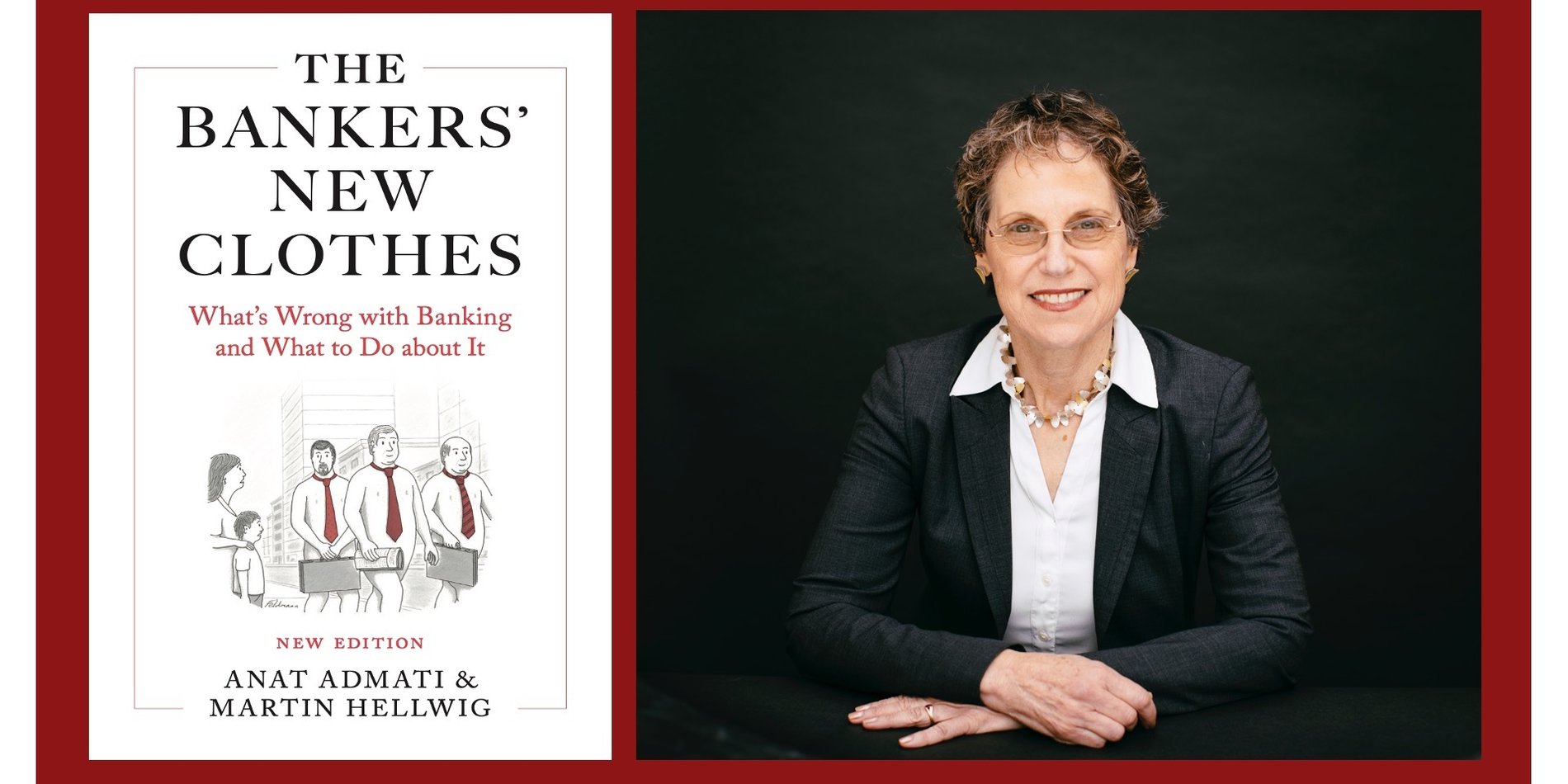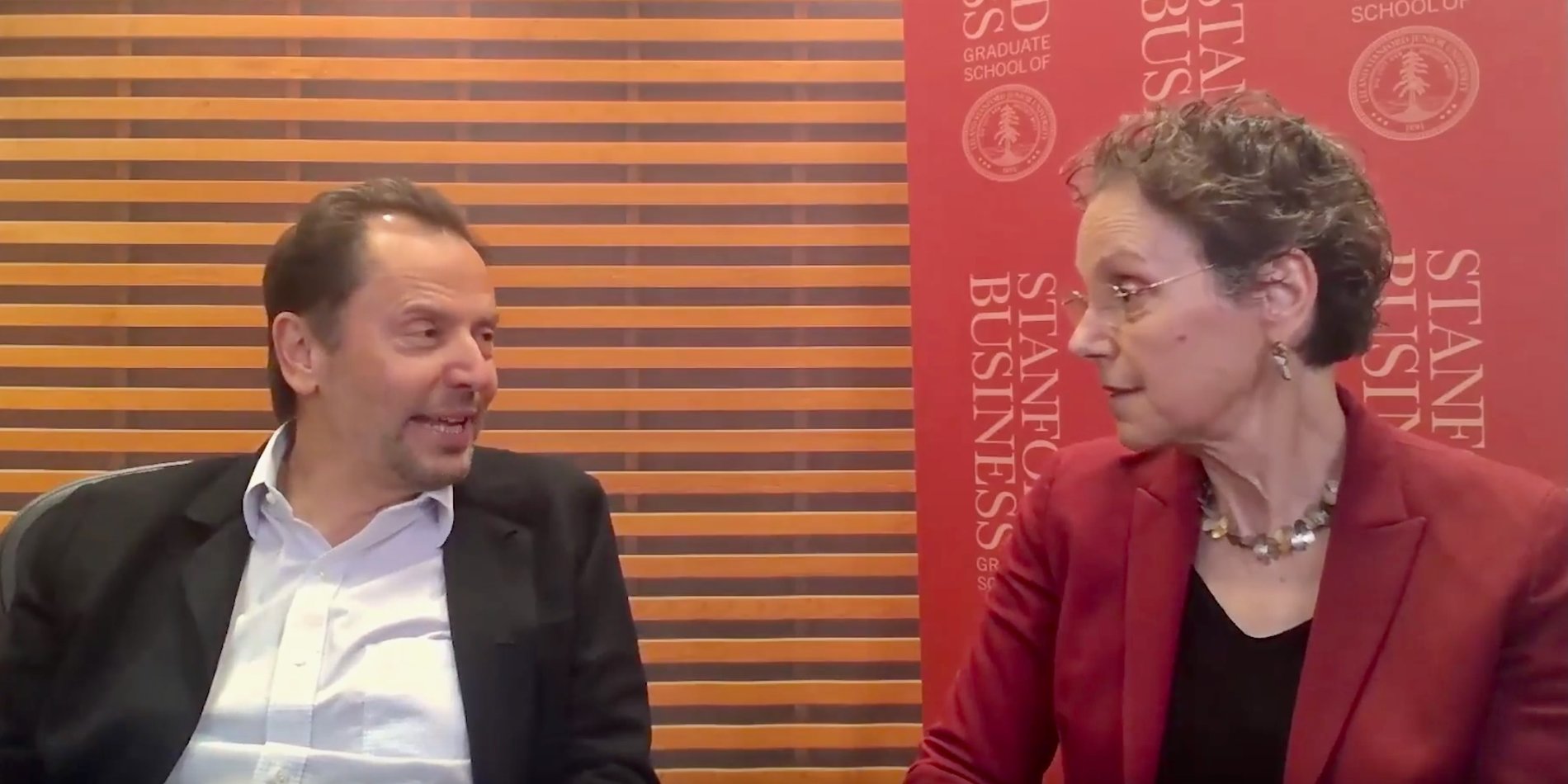Corporations and Democracy: The Challenge, the Opportunities, and Essential First Steps
Corporations dominate our world, from opaque shells to multinationals with resources that rival many governments. Do our laws, social structures, markets, and political institutions, which enable corporations to exist and function, create a proper balance of power among corporations, governments and citizens? Does democratic governance exert appropriate accountability when individuals acting on behalf of corporations and governments affect the lives and livelihoods of many? The public anger, the erosion of trust in many democratic institutions, and the growing sense that democracies and capitalism are in crisis suggest that our systems are out of kilter.
The December 2020 Conference on Corporations and Democracy brought together scholars and practitioners across areas in the social sciences, law, policy and the media to diagnose the root causes of the problems, propose paths forward, and thus help create the necessary “political will” needed for collective action to bring about positive change. The conference topics flowed from the legal rights of corporations to their political impact in democracies, including money, direct policy engagement, and the media, and finally to whether and how laws and law enforcement might exert democratic accountability. The conference website includes the full program and links to all videos and related materials.
Engaging broadly and breaking silos is critical. In the parable about the blind men and the elephant, there is disagreement about the nature of the elephant because each blind person touches a different part of the elephant. Unless we combine multiple perspectives and knowledge bases, our understanding of the complex interactions of corporations and democracies is likely no deeper than what the blind men had of the elephant. As I discussed in this interview about the conference, such engagement is key to the mission of the Corporations and Society Initiative at GSB, which was the main sponsor of the conference together with six other schools and centers, two at Stanford and four in other universities. (A series at ProMarket of the Stigler Center at the Booth School of Business in Chicago, one of the conference sponsors, includes essays by some panelists.)
The narrow silos many people occupy, including private sector leaders, policymakers and academics, and the often inconsistent assumptions they make, sometimes implicitly, are key reasons for controversy and conflicting narratives that can prevent progress. Those who take democracy for granted often fail to consider its fragility and the resources essential for making the institutions of democracy work properly. Many who believe governments are incompetent and corrupt fail to reflect how certain actions, including their own, may have undermined democracy and weakened or corrupted institutions and on what they can do to make the entire system work better. Although it may be difficult at times to detect when claims made by leaders or people considered “experts” are false or misleading, the problem may be one of willful blindness. Our democracies fray when their institutions are too weak and public discourse is dominated by falsehoods. And academics are not immune to the problem of siloes, inappropriate assumptions, and distorted incentives.
Corporate legal rights are the starting point for understanding how corporations interact with democracy. In the first session of the conference, Adam Winkler explained how US corporations amassed an ever expanding set of rights through the courts, going much beyond property rights that are essential for corporations to serve society and eventually including liberty rights initially created for human citizens. Winkler’s essay focuses especially on the controversial 2010 Citizens United Supreme Court decision, which was based on the view that corporate political speech is equivalent to speech by others. Reversing this decision, he says, may require reformers to follow the corporate playbook of persistent effort for many decades. As panelist Elizabeth Pollman suggested and discussed in her essay on corporate personhood, the time is ripe for corporate governance rules and practices to offer better societal controls over corporate political spending.
In response to comments from Stanford Law School Dean Jenny Martinez, and Martin Wolf of the Financial Times, panelists clarified that the US is special among developed democracies in giving corporations unlimited political speech and other rights based on its constitution. The session also brought out the gaps created by disciplinary and sub-disciplinary silos. Luigi Zingales, one of the conference organizers and Stigler Center director, noted that in viewing corporations as a set of assets owned by shareholders or as “nexus of contracts,” economists are blind to the fact that corporations are distinct entities with their own legal rights and to the importance of these rights for how corporations function in the economy. Law scholar Jennifer Taub observed that legal teachings and scholarship put corporate law in the “private law” bucket, while the interactions of corporations and democracy importantly involve many other areas of public law, including constitutional, labor, tax, and environmental laws.
The focus of the second session on corporations and money in politics followed naturally from the discussion on corporate legal rights. Panelists, including Economist Marianne Bertrand, political scientist Alexander Hertel-Fernandez, and founder and president of the Center for Political Accountability Bruce Freed, explored the many ways corporate money can affect policy outcomes, including through trade and lobbying organizations, contributions to non-profit organizations, and, especially in the U.S., sometimes indirect contributions to campaigns and Political Action Committees (PACs). As this story about the session discusses at greater length, whereas political spending can benefit corporations, it also creates risks as stakeholders require transparency or view some such spending as harmful.
Indeed, a month after the conference, corporate political spending leaped to the fore when certain US companies halted a small part of their political spending, such as through PACs and mostly for a limited period, following the January 6, 2021 attack on the Capitol. In a USA Today op-ed later that month, Freed and Harvard Business School Professor Michael Porter challenged corporations to rethink political spending and focus on supporting pro-citizen legislation and political practices, suggesting that cosmetic and temporary changes do not go to the root of the problem and exposing many examples where corporations’ and executives’ rhetoric conflicts with actual corporate political spending in its many forms.
Policy making does not just require financial resources, it often requires expertise as well. “Thin political markets,” a term coined by Karthik Ramanna, occur when issues, for example accounting standards, are not salient to the public. In such cases knowledgeable experts whose interest are not aligned with those of the public often have undue policy influence. Two panelists with policy experience agreed that the problem is pervasive and gave additional examples. Former regulator, Federal Reserve Governor and Deputy Treasury Secretary Sarah Bloom Raskin (now a Visiting Professor and Distinguished Fellow at Duke) referred to the problem as “garbage in, garbage out” and described situations such as in the discussion of rules governing interbank fees when input to policy comes overwhelmingly from narrow interests. Tommaso Valletti, an academic who served as Chief Competition Economist of the European Commission, noted the difficulty for policymakers to find sound research to guide policy when most engagements in policy comes from lawyers representing corporations and when the process can be distorted by bad “research.”
Thomas Jefferson famously said in 1789: “wherever the people are well informed they can be trusted with their own government.” Panelists agreed that to this end, the media can help make policy issues more salient and create more accountability. Academics can also be an important part of the solution through engagement with policymakers and media, but many are blind to the issues, may engage in policy only when paid to do so, or apply research to policy inappropriately. Better norms and practices in academia would encourage academics to help democratic decision making through teaching, research and un-conflicted policy engagement.
The next session on Corporations, Media and Truth asked whether corporations involved in media are able to inform citizens and promote democracy. In today’s world social media platforms are so important for public discourse, but we know that they enable falsehoods to go viral and allow speech to be weaponized, thus undermining democracy. Panelists Nate Persily from Stanford Law School, Jonathan Ford from Financial Times and others discussed the challenges associated with people’s difficulty in distinguishing fact from falsity and the insufficient resources available for investigative reporting. Martin Wolf noted that the revolution in how we communicate politically is as profound as the invention of the printing press, and the impact on democracy may take many years to play out. Meanwhile, actions to increase the transparency and accountability of platforms would help.
The last day of the conference focused on whether governance mechanisms, combined with laws and law enforcement, create proper accountability for corporations and the individuals acting on their behalf. Do corporate boards of directors ensure that corporations comply with laws? On this question, Zingales expressed concerns, in part based on some of his experiences serving on corporate boards, that directors have weak incentives to challenge executives and, worse, that any individual board members who try to engage in more active monitoring may find themselves isolated and unable to make a difference. Federal prosecutor Alex Wilson and law scholar Kevin Davis discussed the potential of laws against bribery and money laundering to deter corruption. It is challenging to detect violations and find those who are involved, who are often in foreign jurisdictions. The requirement that conduct is illegal where it took place and the difficulty of finding sufficient evidence of criminal behavior by higher ups makes successful prosecution challenging. However, US authorities are able to impose large fines and more developed nations have put in place similar laws, which has resulted in better enforcement in recent years. Larry Diamond, an expert on democracy who moderated this session, proposes a 10-step recovery program to deal with corruption in his recent book, which would be an excellent start.
In the last session we turned to basic justice. Who should be liable when corporations cause harm and what are or should be the just consequences in these cases? Law scholar Vikramaditya (Vic) Khanna discussed the notion of corporate criminality. As he explains, US law imposes “vicarious” liability on corporations for harm caused by any employee at work. Since corporations cannot go to prison, the consequences often amount to fines or a probation period with monitors, although in theory at least corporations could lose their ability to conduct certain activities.
Law Scholar Brandon Garrett, whose book and registry trace the consequences of corporate prosecutions discussed the evolution of settlements and the increasing use of Non-Prosecution Agreements (NPAs) or Deferred Prosecution Agreements (DPAs), expressed concerns about whether the justice system’s achieves deterrence. In my remarks I noted that there does not appear to be equal justice under the law in the corporate context, because individuals who fail to prevent significant harms for extended periods of time rarely face any consequences. (My recent essay on Milton Friedman and Justice includes some examples.) It is difficult to assess the failings of the system for lack of good data, but expanding the scope of the Responsible Corporate Officer doctrine and more focus on enforcement should help.
Democracies are fragile. Maintaining a proper balance of power that enables corporations, markets, and governments to deliver on their promise and preventing the abuse of entrusted power (also known as corruption) requires the collective efforts of many. Blind spots, silos, and lack of engagement and incentives are key parts of the problem. Broader and more active engagement, including by academics, and norms that promote this, are parts of the solution. Thanks to all panelists and participants in the conference who helped us gain a better understanding of the challenges related to Corporations and Democracy. I hope many join us in working to bring about positive change on the issues. The agenda is rich and much is at stake.




